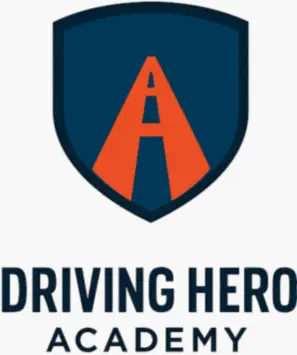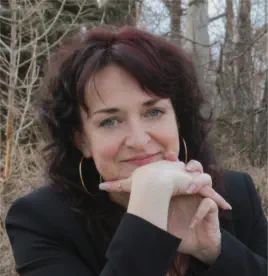About Us

Start Here | About | Programs | Articles | Contact
Your teenager just passed their road test. Now comes the
terrifying part: they still don't know how to avoid the crash
patterns that injure millions of drivers every year.
I know, because I was that teenager.
My Story
At 17, I was weaving through traffic, pushing my car as fast as it would go. I thought I was an amazing driver. I had no idea I was a disaster waiting to happen. Two years later, I was hired by one of the world's top defensive driving programs. Not as an instructor, but in sales. They insisted I take their training course. I rolled my eyes. I already had my license. I knew all the things. Three hours later, I walked out of that session shaken. I had no idea how I'd survived this long without killing myself or someone else. I became obsessed. Over the next 13 years, I dug into crash statistics, driver training standards, and road testing requirements. I became the on-air spokesperson and expert for the school. I trained as an instructor (a process that required more than four times what licensing demanded, with mandatory annual retraining). I taught new drivers, experienced drivers, and commercial fleet operators. I learned a defensive driving system that goes beyond what's required for first responders and typical driving instructors… and I started teaching the people I love. My kids. My nephews and nieces. My friends' kids. But the requests kept coming. More than I could handle. At the same time, I couldn't in good conscience turn people away. Not when I know how to keep them safe. My friend Alex died in a crash 21 years ago. That loss still haunts me. If I can help someone avoid that kind of tragedy, I have to try. That's why Driving Hero Academy exists.The Problem with Driver Training
Most crashes aren't random. Over 90% are caused by driver error: predictable, repeatable patterns that can be avoided once you know how to spot them. But most driving schools don't teach this. They teach people how to pass the test. The road test itself doesn't require drivers to recognize or avoid the situations that lead to crashes. So new drivers leave with a license and almost none of the judgment, awareness, or tactical skill that actually keeps them safe. Most drivers aren't unsafe on purpose. They're simply unaware. And that gap in training costs lives.Our Approach
Driving Hero Academy focuses on real skill development, not traffic law. We assume you already know the rules in your area. Our job is to give you the awareness, anticipation, and tactical ability that typical driving schools don't cover: the skills that prevent crashes in the first place. For parents, this means giving your new driver the understanding and capability to keep themselves and their friends alive after the road test, and taking the guesswork out of teaching them yourself. For already licensed drivers, it means reducing anxiety, sharpening habits, and driving with genuine confidence instead of white-knuckled hope. For professional drivers, it means taking solid skill and pushing it to the top of your game.How It Works
We deliver our programs through recorded online theory sessions that you can watch at your own pace. I teach every session myself. You're learning directly from someone who has spent over a decade mastering this system, not from an hourly instructor reading a script. For parents teaching a new driver, we include a comprehensive digital workbook with step-by-step, lesson-by-lesson guidance on what to teach, where to teach it, and exactly how to teach it in the car. Each lesson includes QR codes linking to demonstration videos so goals and outcomes are crystal clear. The methods are designed to reduce crash risk during in-car practice and make the process far less stressful for everyone involved. We're also expanding our offerings to include advanced programs on freeway and highway driving, and handling adverse conditions. Who We Serve • Parents who want their teens to survive their first years on the road • Newly licensed drivers who want less anxiety and more competence • Experienced drivers who want to lower their own crash risk • Commercial drivers who want to operate at the highest level • Anyone who understands that safety depends on skill, not luckOur Mission
To give people who want better the option to take control and raise the standard of driving far beyond the road test. To give people tools that protect them and the people they care about. And to build a culture where good driving is about awareness, anticipation, and responsibility, not focusing on legal rights and right of way. Driving Hero Academy exists for the people who want to do better behind the wheel. If that's you, let's get started. Are you ready to teach a new driver? Is your crash risk as low as it could be?You Can Find Out For Free
• Driving Coach Readiness Assessment - For parents or mentors who want to teach another driver • Crash Risk Assessment - For experienced and commercial drivers who want to evaluate their crash risk.
La Velle Goodwin

© 2025 Driving Hero Academy. All rights reserved.



